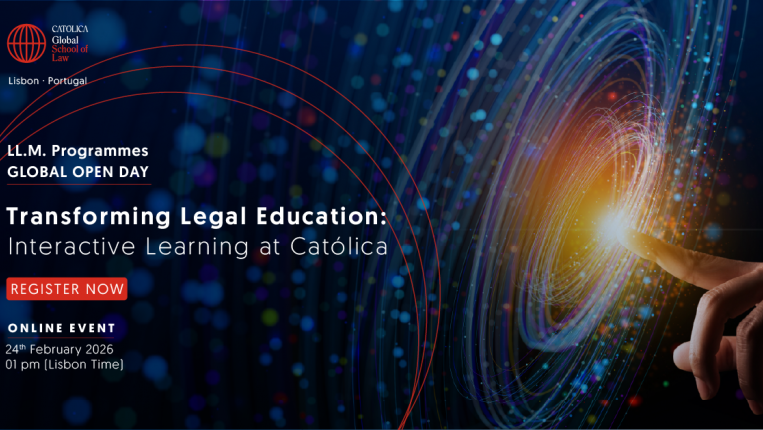Giovanni De Gregorio is the PLMJ Chair in Law and Technology at Católica Global School of Law and Católica Lisbon School of Law. He is also a member of the Católica Research Centre for the Future of Law.
His research interests and teaching activities lie at the intersection of European law and constitutional law with a focus on digital technologies and policy. Giovanni is the author of the monograph Digital Constitutionalism in Europe: Reframing Rights and Powers in the Algorithmic Society (Cambridge University Press, 2022), and he is the corresponding co-editor of The Oxford Handbook on Digitial Constitutionalism (OUP, forthcoming).
His research has been published in leading international journals and edited volumes, including the International Journal of Constitutional Law, Common Market Law Review, German Law Journal, Global Constitutionalism, Computer Law and Security Review, European Journal of Legal Studies, and the International Journal of Communication. He has also co-edited two books: Constitutional Challenges in the Algorithmic Society (Cambridge University Press, 2021), with Hans W. Micklitz and others; and Blockchain and Public Law: Global Challenges in the Era of Decentralisation (Edward Elgar, 2021), with Oreste Pollicino.
Giovanni is also co-founder of The Digital Constitutionalist (Digi-Con), and he serves on the editorial boards of MediaLaws, Diritti Comparati, and the Journal of Law, Market and Innovation. He is also a member of the advisory board of International Data Privacy Law and reviewer for journals and books such as the International Journal of Constitutional Law, Computer Law and Security Review, European Journal of Comparative Law and Governance, and Global Constitutionalism.
Before joining Católica, Giovanni was a postdoctoral researcher at the Programme in Comparative Media Law and Policy (PCMLP) within the Centre for Socio-Legal Studies at the University of Oxford. His work under the ERC-funded ConflictNet project explored freedom of expression, content moderation and artificial intelligence, hate speech and disinformation in conflicts, and the evolution of digital policy. Giovanni earned his PhD in European and Constitutional Law from the University of Milano-Bicocca. His doctoral research, which applied a transatlantic comparative perspective to analyse the interplay between European constitutionalism and technology, was recognised with the prestigious Leonardo da Vinci Prize in 2020 for the best legal publication by an Italian early-career scholar.
Throughout his career, Giovanni has worked on research grants, such as the Wikimedia Research Grant, and as part of research project teams. He has also received numerous academic awards, including the ICON Award (2022) for the best article in the International Journal of Constitutional Law, the Common Market Law Review Award (2021) for best research article, and the Euroconsumer Award "My Data is Mine" (2021) for best paper.
He has held various academic and research positions, including visiting Professor on AI and Law at the University of Bern, Academic Fellow at Bocconi University, Research Associate at the Centre for Socio-Legal Studies (Oxford), non-resident legal researcher for Columbia Global Freedom of Expression, and Visiting Fellow at the Center for Cyber Law and Policy at the University of Haifa.
Giovanni is also an active member of global academic and policy networks, including his position of scientific director of Digital Constitutionalism and Policy (DICOPO), co-convenor of the Digital Constitutionalism research group at ICON-S, co-chair of the IACL Research Group on “Algorithmic State, Society, and Market – Constitutional Dimensions”, and member of the working groups drafting the European Code of Practice on Generative AI. He also participates in the Centre for AI and Digital Policy (CAIDP), the Forum on Information and Democracy, the Global Internet Governance Academic Network (GigaNet), the Dynamic Coalition on Platform Responsibilities at the Internet Governance Forum and the Internet and Jurisdiction Policy Network.




